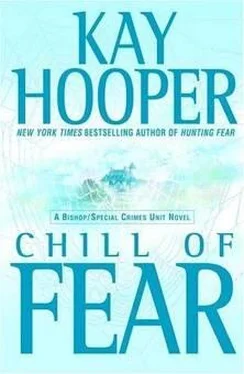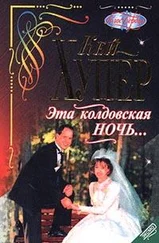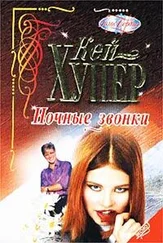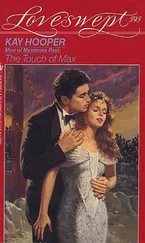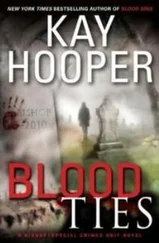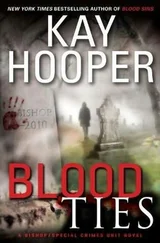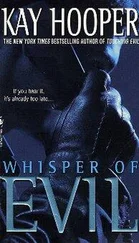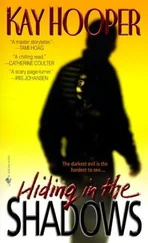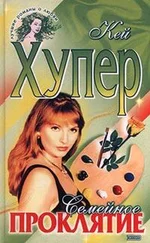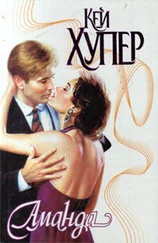Diana was silent, clearly uneasy.
"Your sketch shows her the way she was that summer," he continued. "The heart-shaped locket around her neck? I gave her that. In late July, at her birthday party. It disappeared when she was murdered, and hasn't been seen since."
"You can't possibly know it's the same locket, not from a simple — and badly drawn — charcoal sketch. I'm not an artist, Quentin—" She broke off as their waitress appeared to take their plates and inquire about dessert and coffee, finally leaving them alone again with the latter.
"I'm not an artist," Diana repeated steadily. "And nothing in that sketch can be taken seriously. I don't even know where that — that image came from, but there has to be a perfectly rational explanation for it."
"I agree. But my idea of rational and yours might just be light-years apart."
"If you believe in the paranormal, probably so." She shook her head. "It's just... mysticism and junk science. It isn't real. There are valid medical explanations for why people see things that aren't there, or hear voices, or — or whatever. It's not their fault, it's just that they're sick. They have an illness."
"And what if they don't?"
She stared at him.
"What if they don't, Diana? What if all those valid medical explanations are wrong? It wasn't all that long ago that medical science used leeches and didn't have a clue that a chemical imbalance in the brain could cause all sorts of problems then mistaken for insanity."
"Quentin—"
"You read the newspapers, right? How often are we told that scientific or medical facts have been proven wrong? Technology advances, new discoveries are made, and suddenly today we know more than we knew yesterday. So we rethink. We come up with better tests, or we look at the evidence in a new light of understanding. The impossible becomes possible, even likely and predictable."
"Even so, some things are just too far-out to be believable."
"And psychic ability is too far-out for you?"
"Yes."
"Why?" He hesitated when she remained silent, then said slowly, "Why is it so much easier for you to believe that you are sick?"
"We weren't talking about me," she said, visibly tense.
"Weren't we? Diana, there's nothing wrong with you. That's why all the medications and the therapies haven't made a difference. You're trying to fix something that was never broken."
"You don't know anything about me."
"I know you're psychic. And knowing that, I can guess a few other things. Either you were born with the abilities, or else they were triggered when you were very young, by some sort of physical or emotional trauma. You tried to tell people — probably your parents first — about your experiences. About seeing things that didn't seem to be real. About hearing voices. About unusually vivid dreams. Maybe there were blackouts, missing time. And that's when the whole useless round of doctors and medications and therapies began."
Still tense, she said, "And where did you get your medical degree, Quentin?"
"How many doctors with medical degrees have been unable to help you?" he countered. "When is it time to consider perfectly viable alternate explanations for a so-called disease no expert has been able to treat? Next month? Next year? When you've done a roll call of the AMA? When most of your life is behind you and it's not even worth trying one more time?"
Quentin decided later that he was probably damned lucky she didn't just get up and walk away. He was pushing too hard, and he knew it; he was demanding that she suddenly question and discount what had been drummed into her for too many years and by too many doctors, and that was something that could never happen in an instant.
Diana didn't walk away. But she clearly wasn't willing to continue with the same topic. She was expressionless, but when she uncrossed her arms and reached for her coffee cup, the movements were jerky with strain.
"Look, you said you wanted to talk about this girl and her murder. I'm curious because you say my sketch looks the way she looked before she died."
"I say?"
"Well, if you don't have a photograph — that you can show me," she qualified hastily, remembering he'd said there were crime-scene and autopsy photos, " — you can't really prove it, can you?" She nodded when he remained silent. "For all I know, you did imagine a similarity. Hell, for all I know, you could be making up the whole damned thing. I met you a few hours ago; how do I know you're being honest with me?"
"You don't," he admitted.
"I don't even know you're really with the FBI."
Sighing, he said, "I left my I.D. in my room, but I'll make sure to show it to you later. I'm not lying to you, Diana. About anything."
"Are you going to tell me what happened to Missy?"
"Of course I am. As much as I know, anyway." He hesitated and then, compelled as he had been earlier in the observation tower, reached across the table and lightly touched her hand. "I'm sorry, I didn't mean to push—"
Whatever else he said, Diana didn't hear. It was as though a switch had been thrown; one instant she was sitting at a table with this man, on a warm, sunny veranda, conscious of the muted sounds of other people around them, and the next instant everything was different.
She was still on the veranda, but it was a darkened and gray space brightened intermittently as though by flashes of lightning. There was a peculiar smell she couldn't identify in the air, and it was cold. It was very cold.
Eerily, in the flashes of light she could see Quentin sitting across from her, looking at her with a slight frown, but he vanished in between them.
And when she looked down at the table, she could see in the flashes her hand gripping his strongly, as if she were holding on to a lifeline.
Between the flashes, her hand was holding... nothing.
She was completely alone in the grayness of almost-night.
Diana.
She didn't want to, but Diana found herself turning her head slowly to the right. There were two large potted palms flanking the steps that led down to the lower terrace, lawn, and the garden paths; at first, that's all she could see.
Then there was a flash, and between the plants stood the little girl.
Long dark hair. Big, sad, dark eyes. Pale oval face.
Missy.
In the gray twilight separating the strobelike flashes, she vanished, only to reappear in the bright white light.
Help us.
She didn't appear to speak; her lips didn't move. But with every flash she was moving closer and closer, closing the distance between them, her pallid face beginning to twist in an expression of pain, her eyes dark pools of terror.
Her hands reached out toward Diana, pleading—
"Diana!"
She jerked her head around to stare at Quentin, blinking in the abrupt return to the bright warmth of the veranda. And then in the next moment a loud rumble of thunder made her look up to see dark clouds rolling overhead, swiftly blotting out the sun and bringing a chill to the air.
"We'd better get inside," Quentin said, over the sounds of chairs scraping against the stone surface of the veranda as other guests came to the same decision. "This storm came out of nowhere."
"Did it?" she murmured, feeling very... peculiar. "Or was it here all along?"
"What?"
Diana realized that she was indeed holding his hand, and it required an enormous effort to force herself to let it go. "Nothing. It's... it doesn't matter."
"We should get inside," he repeated, frowning, as he got to his feet.
Diana rose as well, automatically. She was cold. And she was scared. Her body was tingling oddly, as if an unfamiliar energy coursed through her. And yet... there was something familiar about the sensation, like the distant echo of a forgotten memory.
Читать дальше
